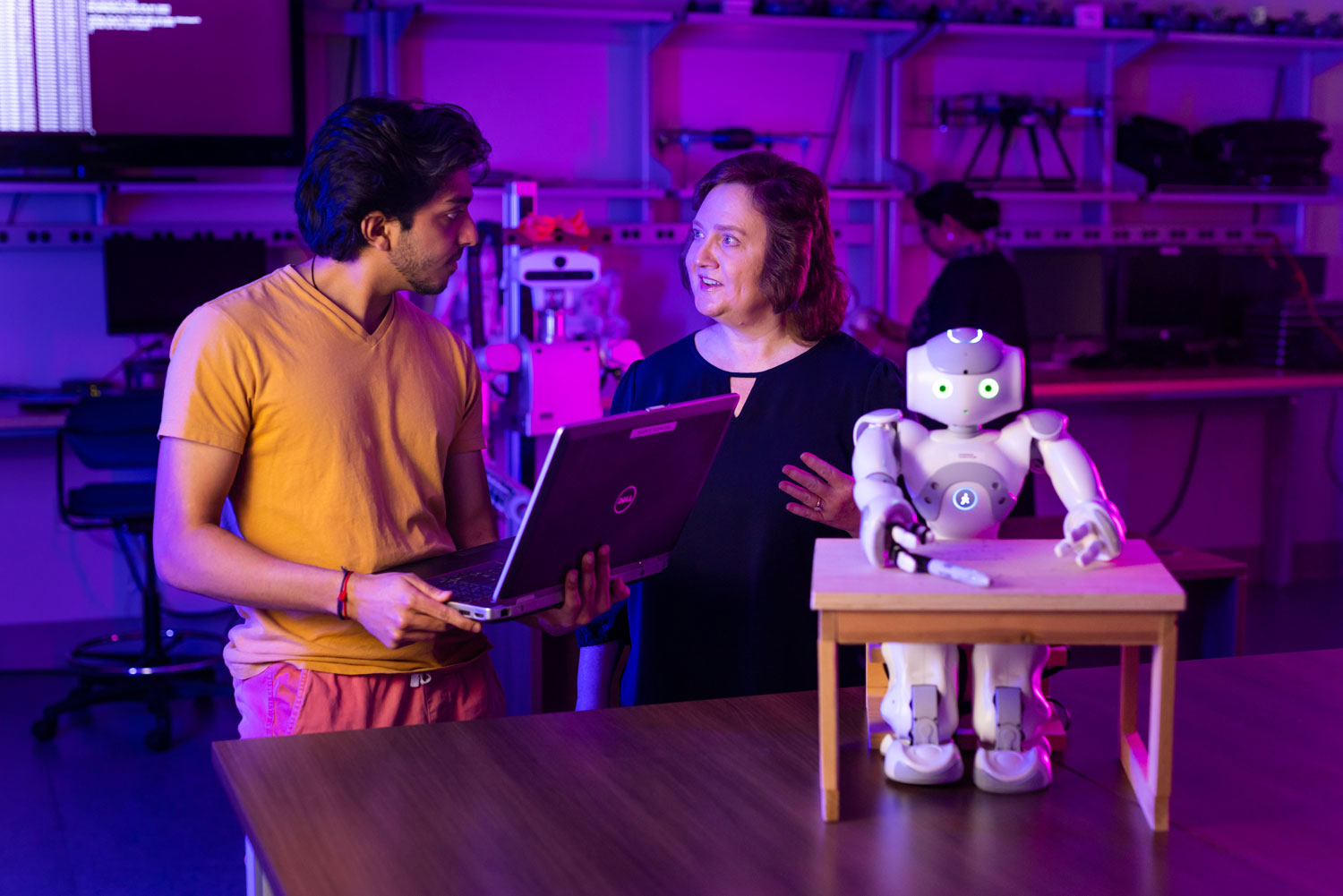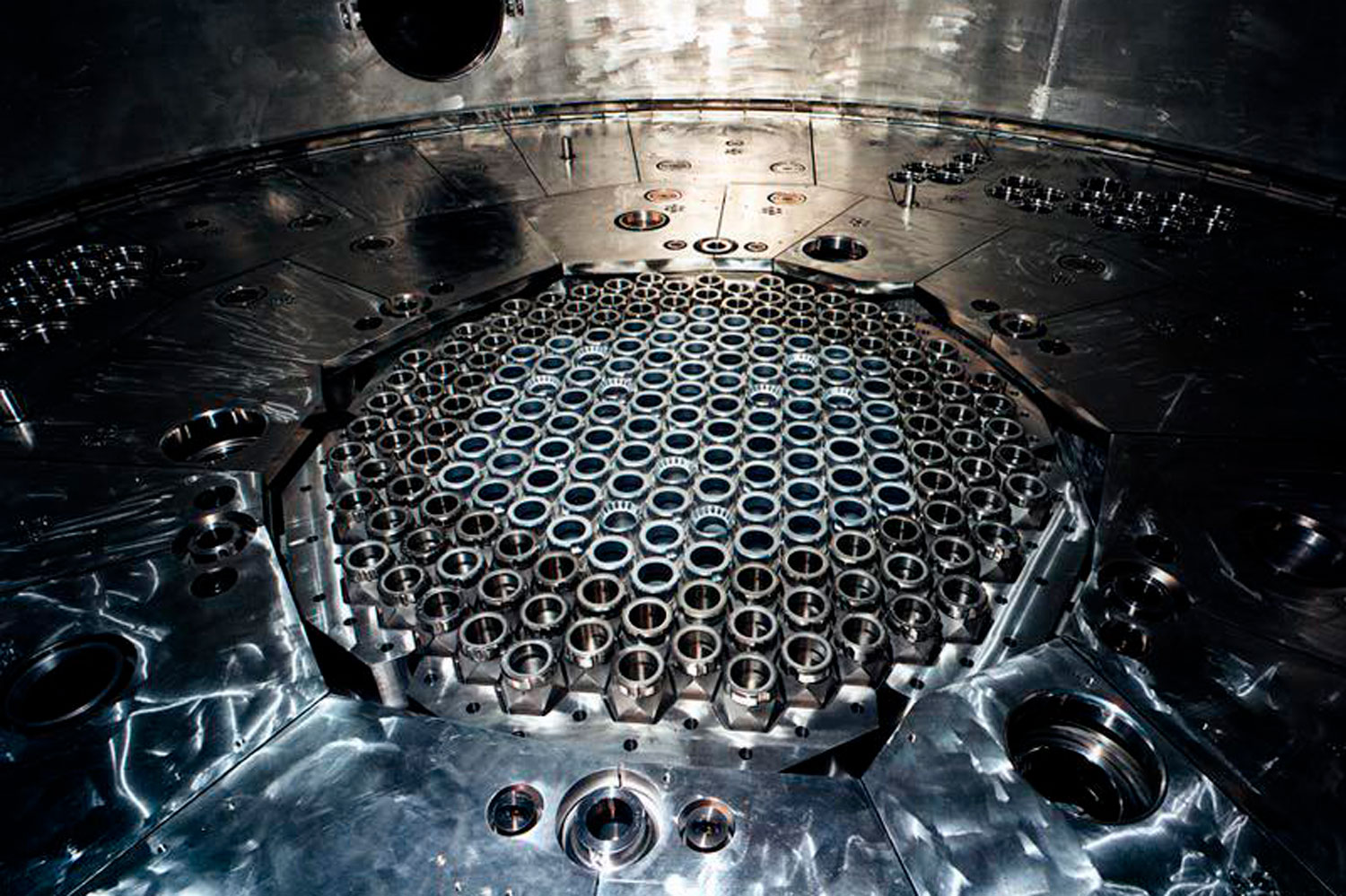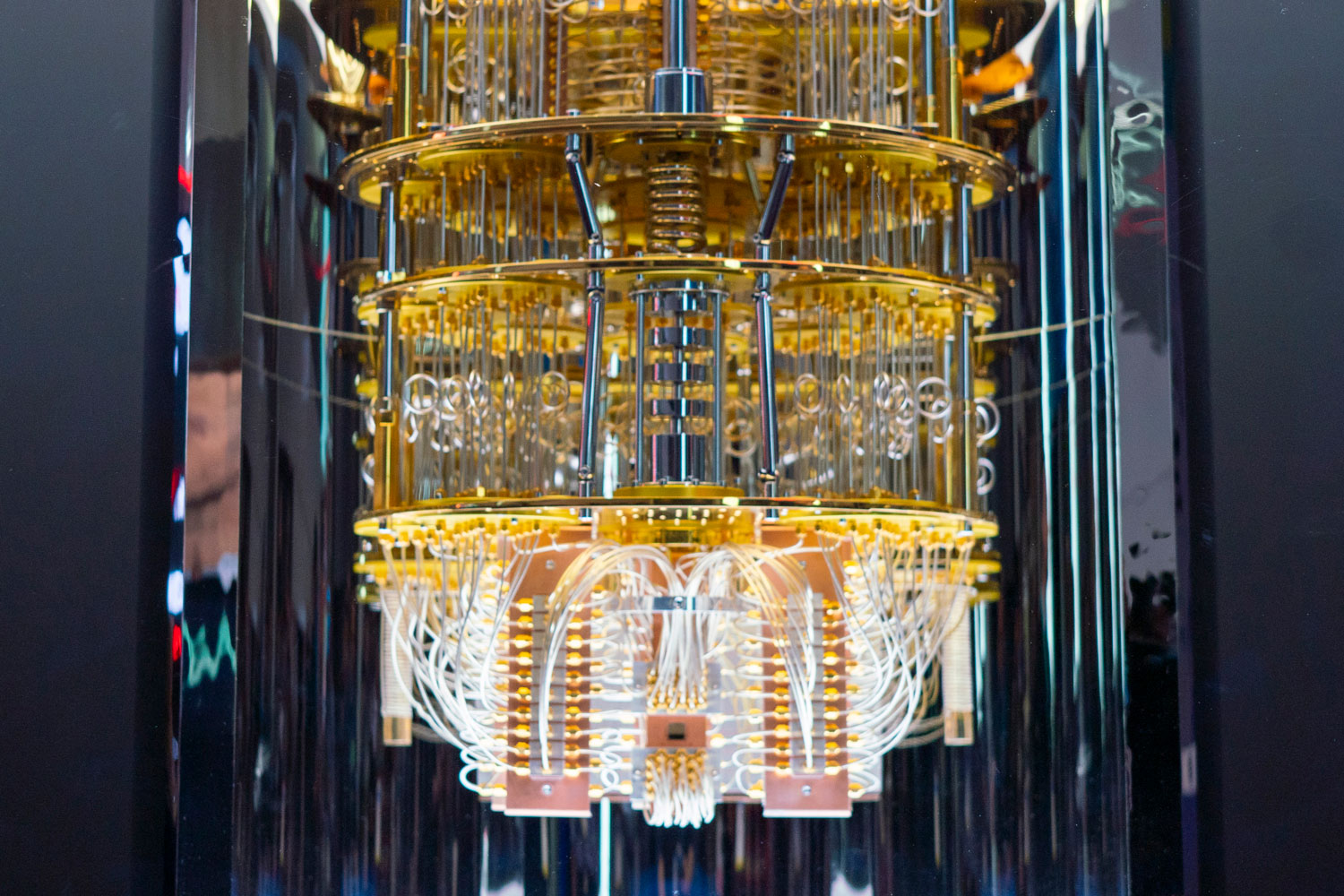By David Goddard.

Embracing the Promise of Artificial Intelligence
EECS alumna and Professor Lynne Parker began serving in September as associate vice chancellor and director of the new AI Tennessee Initiative at UT. Parker is leading the university’s strategic vision and strategy for multidisciplinary artificial intelligence education and research.
The initiative is designed to increase UT’s funded research, expand the number of students developing interdisciplinary skills and competencies related to AI, and position the university and the state of Tennessee as national and global leaders in the data-intensive knowledge economy. Her role brings together the broad perspectives and expertise of faculty and students from across many disciplines, not only on UT’s Knoxville campus but also with partner institutions and organizations across the state.
Parker recently completed a four-year post as deputy US chief technology officer and director of the National Artificial Intelligence Initiative Office within the White House. In that role, she oversaw the development and implementation of the national artificial intelligence strategy.

Giving Microsatellites a Boost
Common notions of space satellites might evoke images of Sputnik, but the future of space exploration might be a little smaller—around one to 10 kilograms. Nanosatellites, or CubeSats, offer a more accessible and affordable way to explore space compared to traditional satellites. Current models do not have propulsion thrusters, however—an issue that could lead to potential problems like collisions and the creation of space debris.
That could soon change, thanks to Associate Professor Trevor Moeller and Research Assistant Professor Lino Costa (both of UTSI) and their patent-pending micropropulsion technology, μSTAMPS.
In its first-ever round of funding, the US Space Force recently awarded a Small Business Technology Transfer grant to a team pairing the UTSI research with NearSpace Launch. The award will allow Moeller and Costa to try to integrate UTSI’s μSTAMPS thruster technology with NSL’s Black Box diagnostics and telemetry pack.

Moving Nuclear Forward
The US Department of Energy created the Nuclear Energy University Program to help the country remain in its leadership role in nuclear research. The program is supporting a trio of projects led by UT nuclear engineering faculty.
Southern Company Faculty Fellow and Associate Professor Jamie Coble leads one project along with Associate Professor Nicholas Brown and researchers from other institutions. Their task is to expand nuclear’s important role in fighting climate change by exploring the use of nuclear plants in other green areas like hydrogen production, desalination, and production of petrochemicals and synthetic fuels.
Assistant Professor Vlad Sobes heads up a project aimed at extending the knowledge gained by a series of tests conducted under the International Criticality Safety Benchmark Evaluation Project, which created a data set focused on how graphite reflectors affect criticality.
Postelle Professor, Chancellor’s Professor, and Department Head Wes Hines leads the third project, which also includes Sobes, Assistant Professor Sandra Bogetic, and UCOR Fellow and Professor Jason Hayward. It is aimed at exploring how the Fast Flux Facility will allow researchers to experiment with many different reactor designs, develop new ones, and make reactors more financially advantageous overall.

Repurposing E-Vehicle Batteries
The increasing adoption of electric cars as a transportation method of choice has resulted in an increased number of specialized batteries that have run the course of usefulness in vehicles but might still be able to serve society in another way.
That’s the premise behind a project led by Nissan, which seeks to turn old batteries from its Lead model of electric vehicles into power supplies for its facilities near Nashville and for the area power grid there. UT–ORNL Governor’s Chair for Electrical Energy Conversion and Storage Tom Zawodzinski (CBE) is serving on the project, which also includes the UT Oak Ridge Innovation Institute, Middle Tennessee Electric, Tennessee State University, and Seven States Power Corporation.
The Leaf batteries will be part of what Nissan is calling battery energy storage systems, which will be made up of several batteries deployed a single unit that provides the flow of power.

Finding the Optimal Outcome Faster
Using computing to find solutions to problems isn’t new, but the techniques and technologies used to make breakthroughs is growing more powerful and faster all the time. Quantum computing in particular has broad appeal for delivering solutions, but improving the speed at which it does so remains a question.
Complex combinatorial optimization problems, which require specialized algorithms to solve, are one area where even a small improvement could have big results. Assistant Professor Rebekah Herrman and Dan Doulet Faculty Fellow and Professor James Ostrowski (both ISE) have developed a potential answer.
They propose taking a quantum approximate optimization algorithm and increasing the number of parameters it uses, which also increases the chance of finding the optimal solution more quickly. The NSF recently backed their idea with almost $400,000 in funding, highlighting the importance of the work.

Helping the Army Keep Its Equipment Top Notch
Addressing the challenge of predicting material degradation and structural damage tolerance under fatigue loading of ductile metals commonly used in US Army vehicles, weapons, and structures is a challenge being taken on by Associate Professor Reza Abedi and Associate Professor and Jessie Rogers Zeanah Faculty Fellow Stephanie TerMaath (both MABE).
The Department of Defense awarded Abedi a $600,000 Defense Established Program to Stimulate Competitive Research (DEPSCoR) Award to pursue research that supports their national defense strategy.
DEPSCoR encourages collaborative teams composed of a researcher who has already served as a principal investigator on a DOD-funded award and one who has not, allowing the experienced researcher to provide mentorship to their colleague. Abedi has teamed up with TerMaath, who has 12 years of DOD experience in industry and 10 years of DOD academic research experience, to serve as collaborator and mentor.